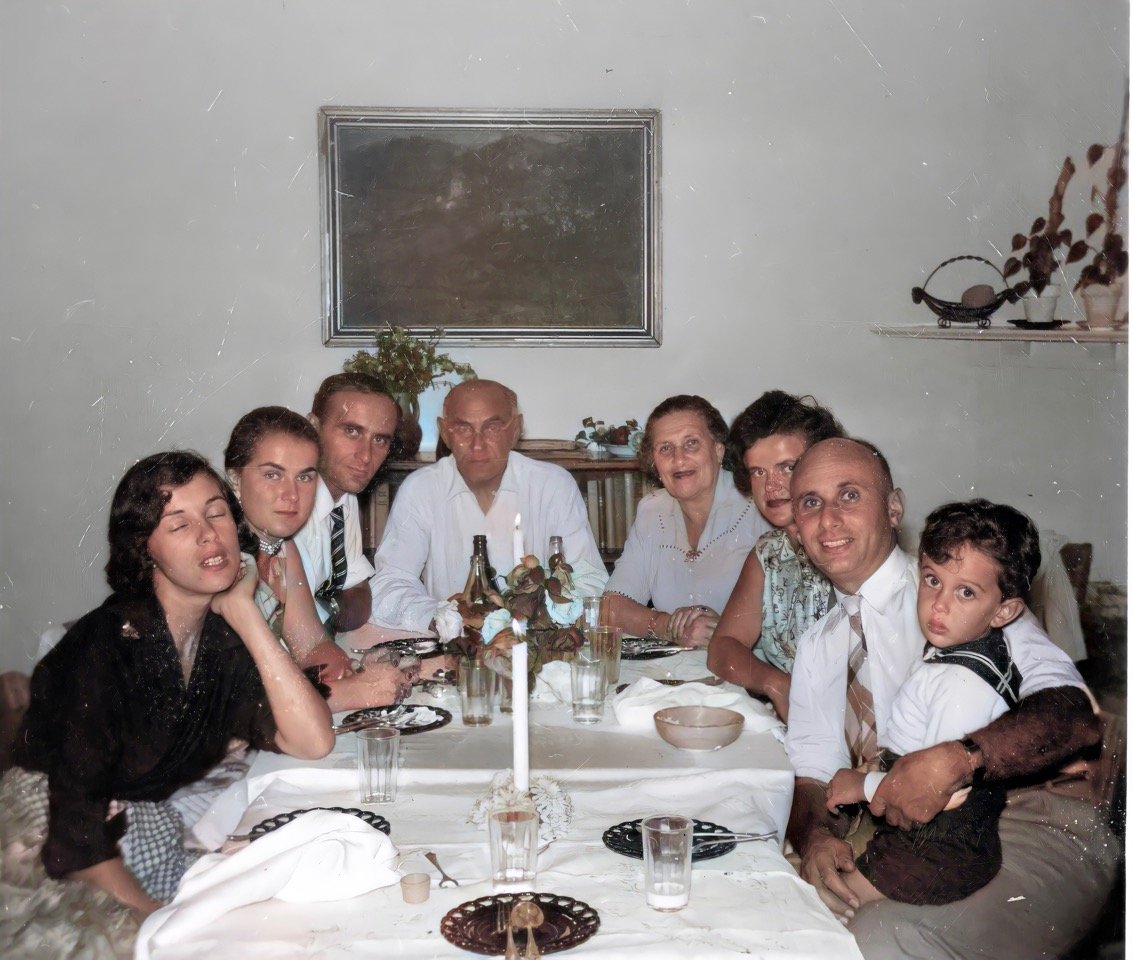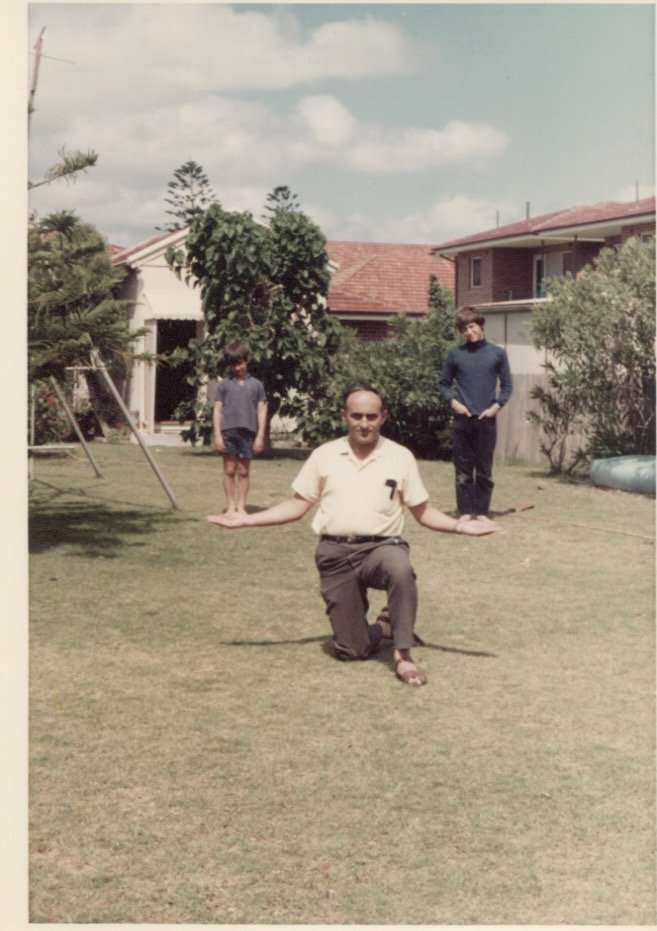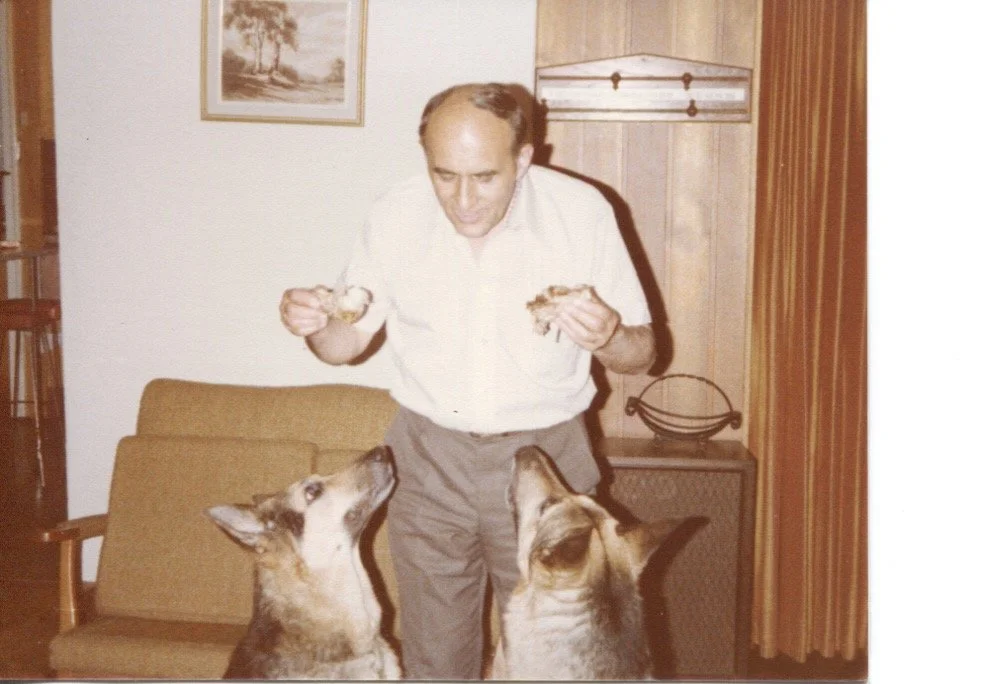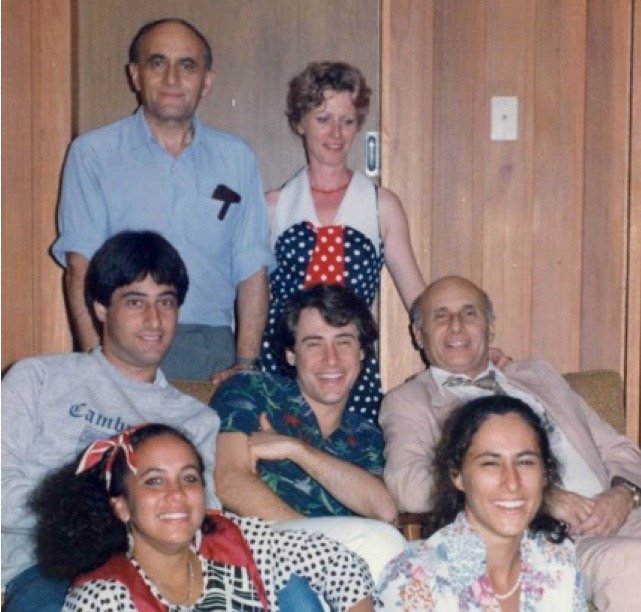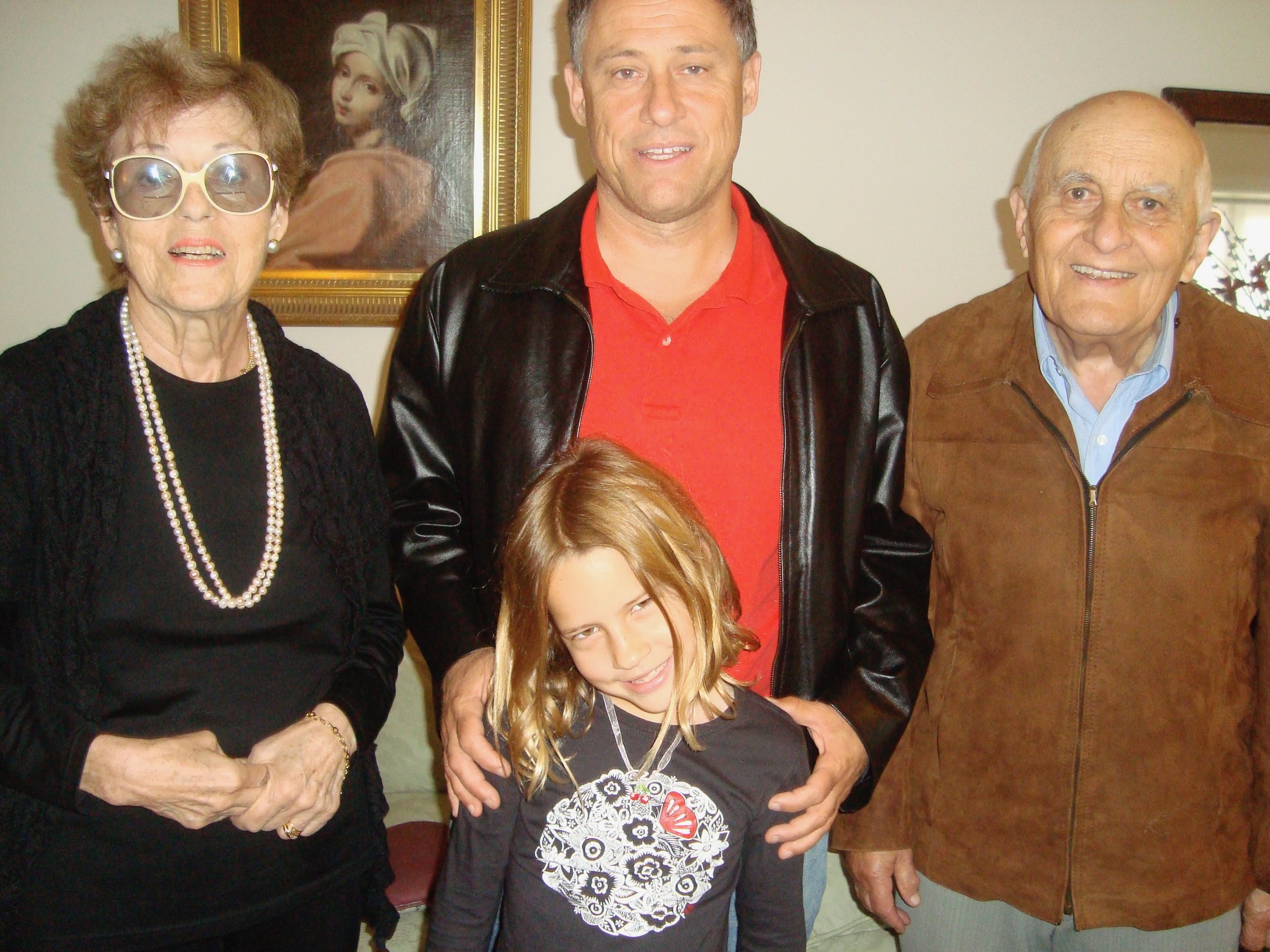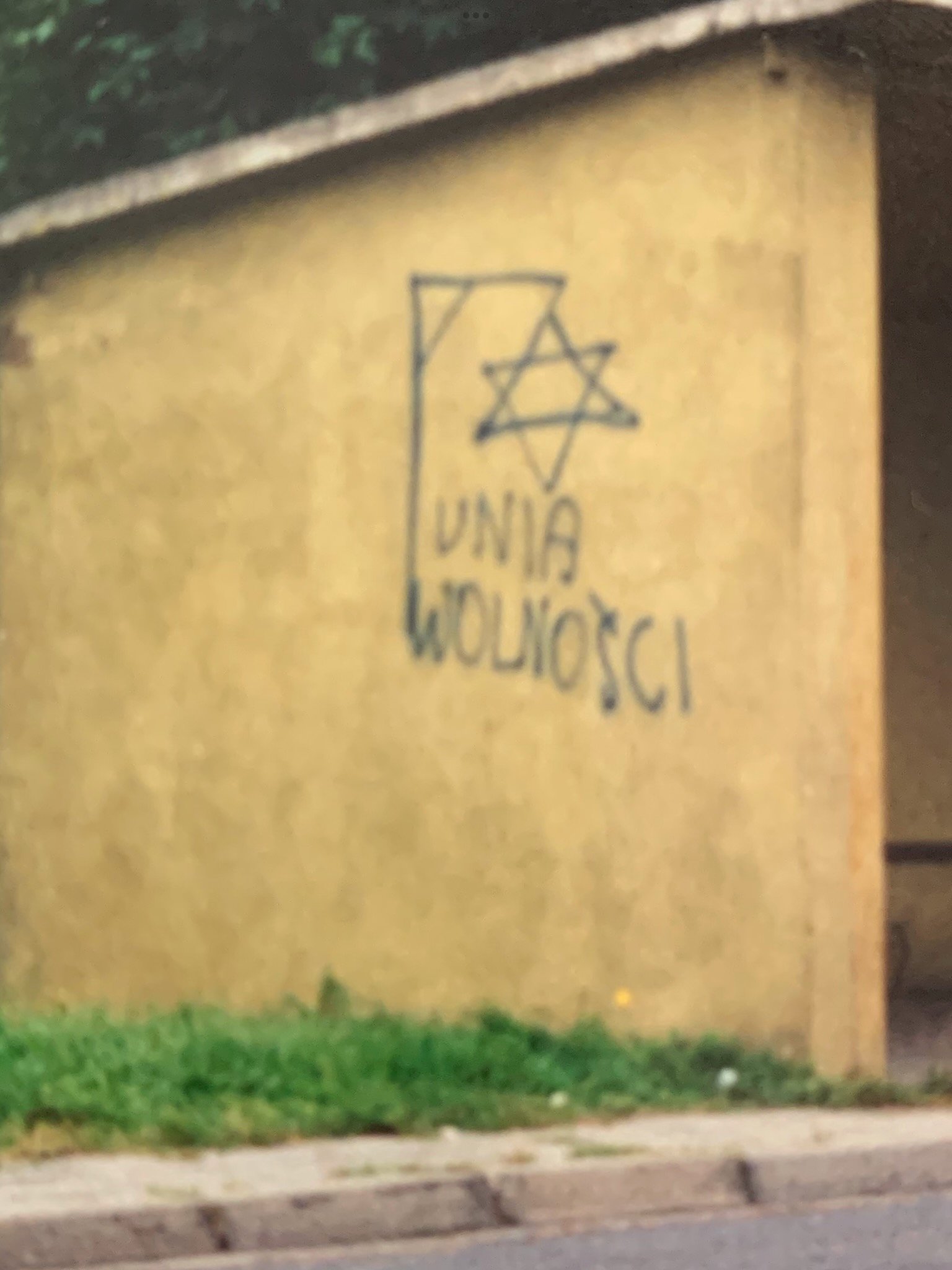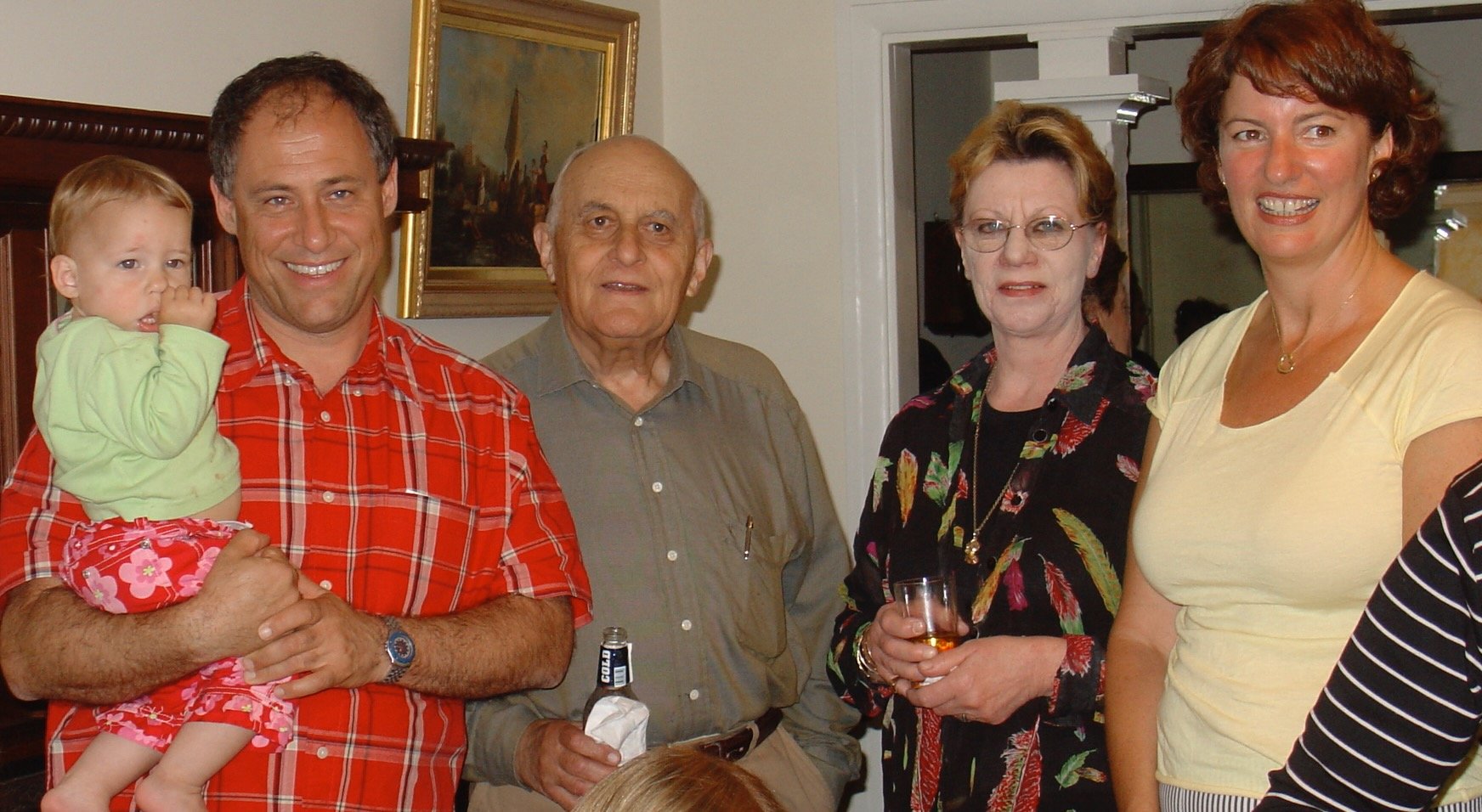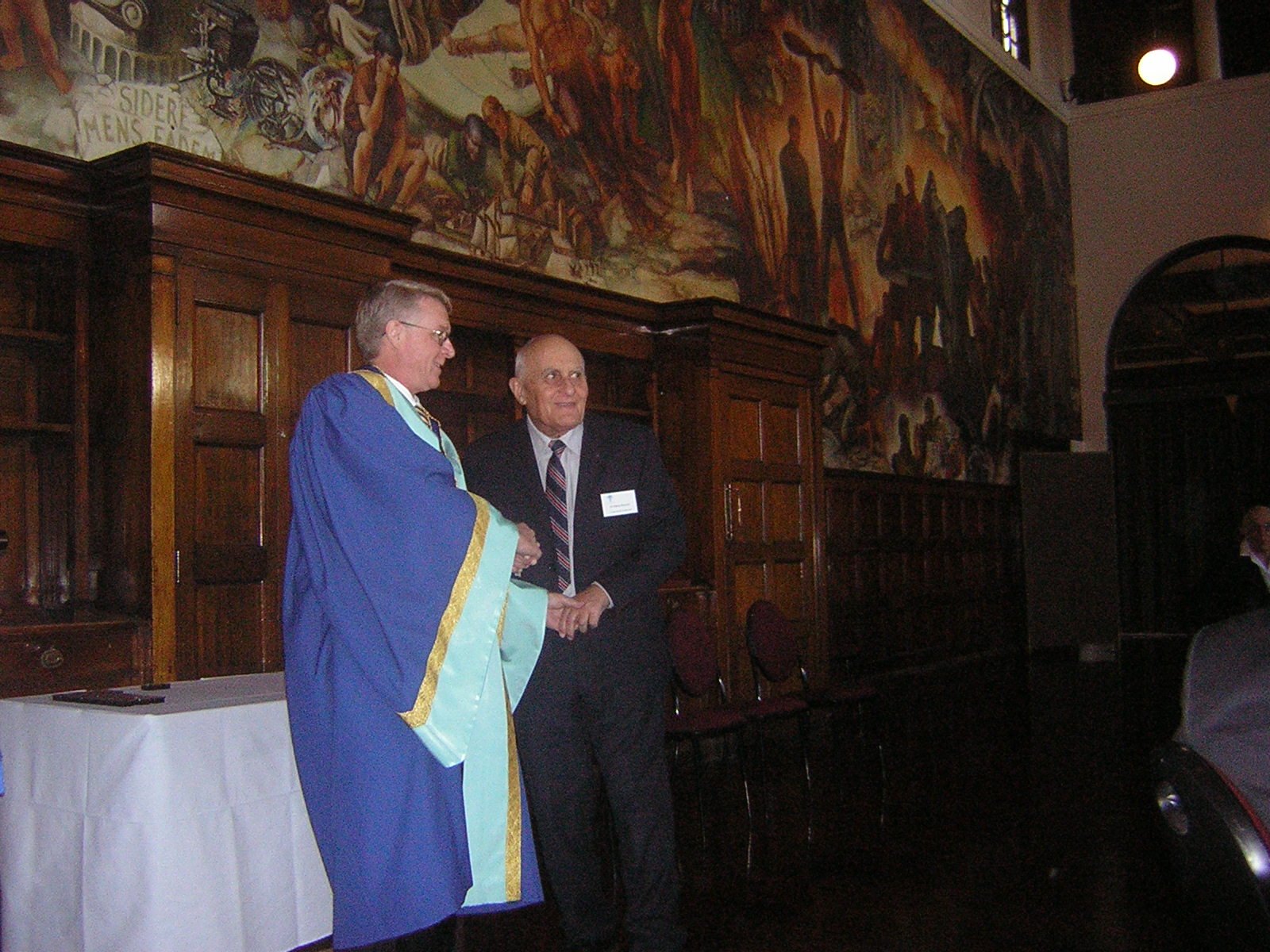Life in Sydney
After leaving Poland in the summer of 1947, Henry travelled to Sydney, completing his medical studies at Sydney University in 1952. Here are some photographs of his life as a family doctor in his practice at Narrabeen, raising a family as a single parent and attempting to live as normal a life as possible in the face of the traumas he suffered in the Holocaust.
Medical Registrar Crown Street Hospital 1955
Henry trained for a year as an obstetrician at Crown Street before moving to general practice in Narrabeen in 1956. He retained an interest in obstetrics, was on the obstetric roster at Mona Vale Hospital delivering over a thousand babies over the years until 1979.
Family Dinner Narrabeen 1957
Evelyn, Marysia, Dr Henry Bierzynski, friend, Hella, Ignacy and his son Leslie.
Uncle Dr Henry Bierzynski was visiting Henry in Narrabeen on a visit prior to emigrating with his family to Australia in 1959.
Henry’s practice in Narrabeen
The path to Henry’s medical practice under his home on Pittwater Road Narrabeen, now opposite the Tramshed Cafe.
Henry at his desk in his practice in Narrabeen
This is how Henry’s patients would have seen Henry when consulting him as a patient.
Henry with Nick and Tony, late 1960s
Henry having fun with Nick and Tony in the backyard of his Narrabeen home. In the background is the white ‘flat’ , the small cabin in which his housekeepers would live and where he confronted the intruder firing his rifle.
Having fun riding Fiona’s bike in the 60s
Henry tried to live as normal and enjoyable life as possible.
Canoeing on Narrabeen Lake
Feeding Tristan and Shah 1970s
With his new puppy Pasha
Henry cooking at his BBQ in Narrabeen
Henry loved having friends and family over for a BBQ.
Henry in his new Volvo which he bought using compensation money from Germany in 1974.
Kombi Campervan West Berlin 1979
The orange Kombi campervan in the caravan park in West Berlin on the trip to Poland. Note the camping spot is on a section of old roadway blocked off by the Berlin Wall in the background.
Family Photo Narrabeen 1982
Henry and Linny (back row)
Nick, Tony and Ignacy ( middle row)
Annie Bierzynski and Fiona ( Front row)
Henry meets Evelyn at Sarah’s seventh birthday
Evelyn attended Sarah’s seventh birthday in October 2010 meeting Henry for the first time in 45 years.
Volgograd (Stalingrad) 2001
Henry, standing on top of Mamayev Kurgan, the dominating hill overlooking the city and Volga river during his trip to Russia in 2001 with Tony. Germany’s defeat in the Battle of Stalingrad in February 1942 was the turning point in the war after which Henry knew Hitler would lose.
Anti-semitic graffiti, Poland 1997
Henry was deeply affected by ongoing anti-Semitism in Poland
Anti-Semitic graffiti Gdańsk 2001
Henry could not understand the ongoing anti-Semitism in Poland considering that almost all the Jewish population had been either murdered or emigrated and there were hardly any Jews left in Poland.
Sarah, Tony, Henry, Linny and Jen
Henry and Linny celebrating grand-daughter Sarah’s first birthday, October 2004.
Henry awarded life membership of the
Australian Medical Association 2006
Henry and Tony 2006
Visiting Sydney University for Henry’s life membership of the AMA.
Henry’s 90th Birthday
December 2010
Henry and all the Bierzynski family descendants in Australia at his birthday celebration.
The Ghost Tattoo
About The Ghost Tattoo
To the outside world, Henry Bernard was a hard-working and beloved family doctor on Sydney's Northern Beaches. Yet he was also a Holocaust survivor whose life was profoundly affected by the experiences of his past. He took extreme steps for his family's security, keeping a rifle near his bedroom and covering up his family's Jewish origin. He was obsessed with paying off debt - the German word for debt being the same as the word for 'guilt'. He kept his striped Auschwitz uniform with a picture of his mother in his wardrobe. These obsessions helped destroy his marriage and restricted any hope he had of conventional domestic happiness.
But Henry had a bigger secret and a deeper shame about what he had done during the war. He suffered privately until he began returning to Germany and Poland to confront his past and come to terms with the deaths of his parents and of Halina, the love of his life.
The Ghost Tattoo is the story of how Tony Bernard, Henry's eldest son, went on a forty-year journey with his father to solve the mystery of why Henry was the way he was, and how he finally came to understand the desperate choices Henry had made in the ghetto to try to keep himself and his family alive.

